Hey, there’s a new ChatGPT-type tool, just for speechwriting. It’s called Verble and it’s described as “your AI speechwriting assistant.”
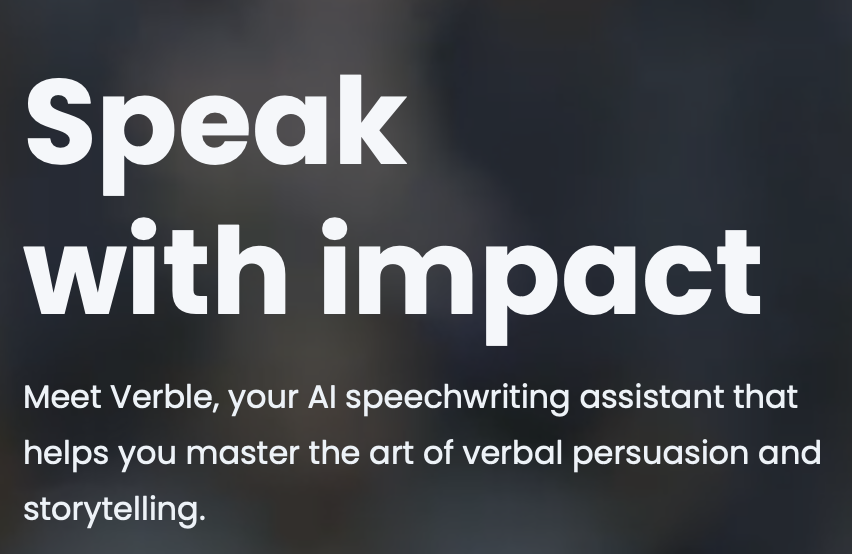
I thought I’d check to see if it could become my AI speechwriting assistant. I had a pretty urgent job for it, actually. My company has our annual offsite meeting next week, where we plan the whole year. I have a big brainstorm that could be a hard sell to my crew, and I thought I’d put Verble to work.
All of the below took 15 minutes—the vast majority of that time spent being my own, into the prompts. The first blue prompt below, complete with typo, the program actually typed in for me.
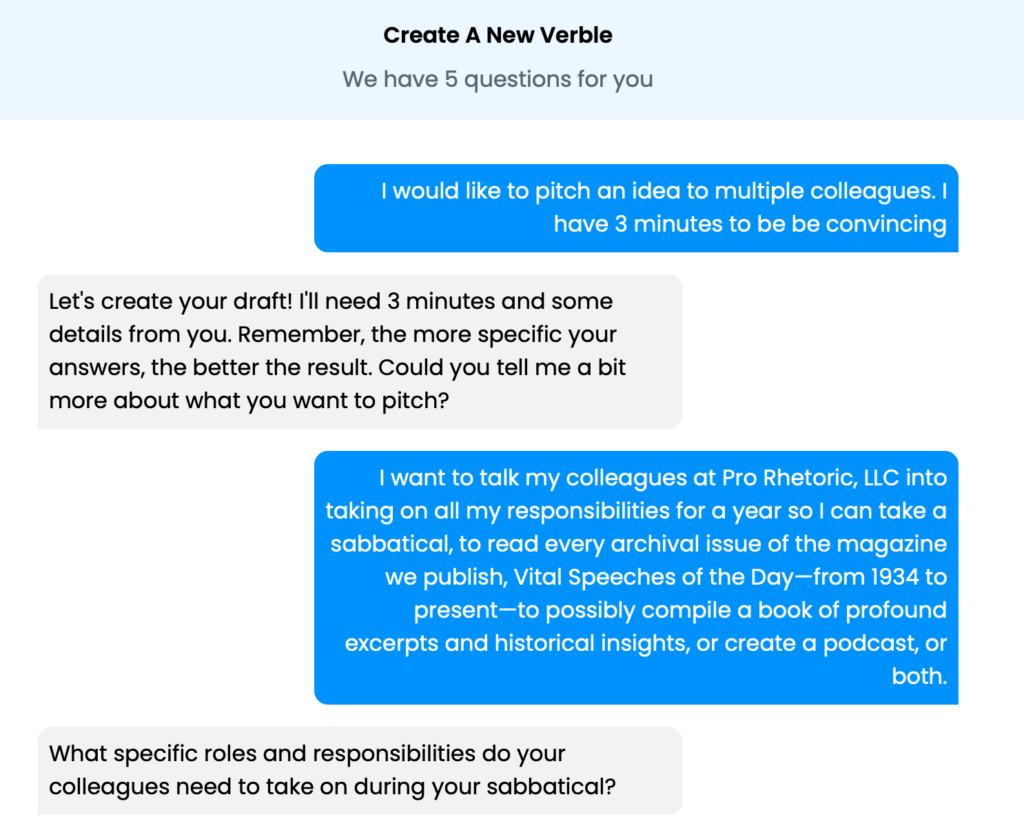
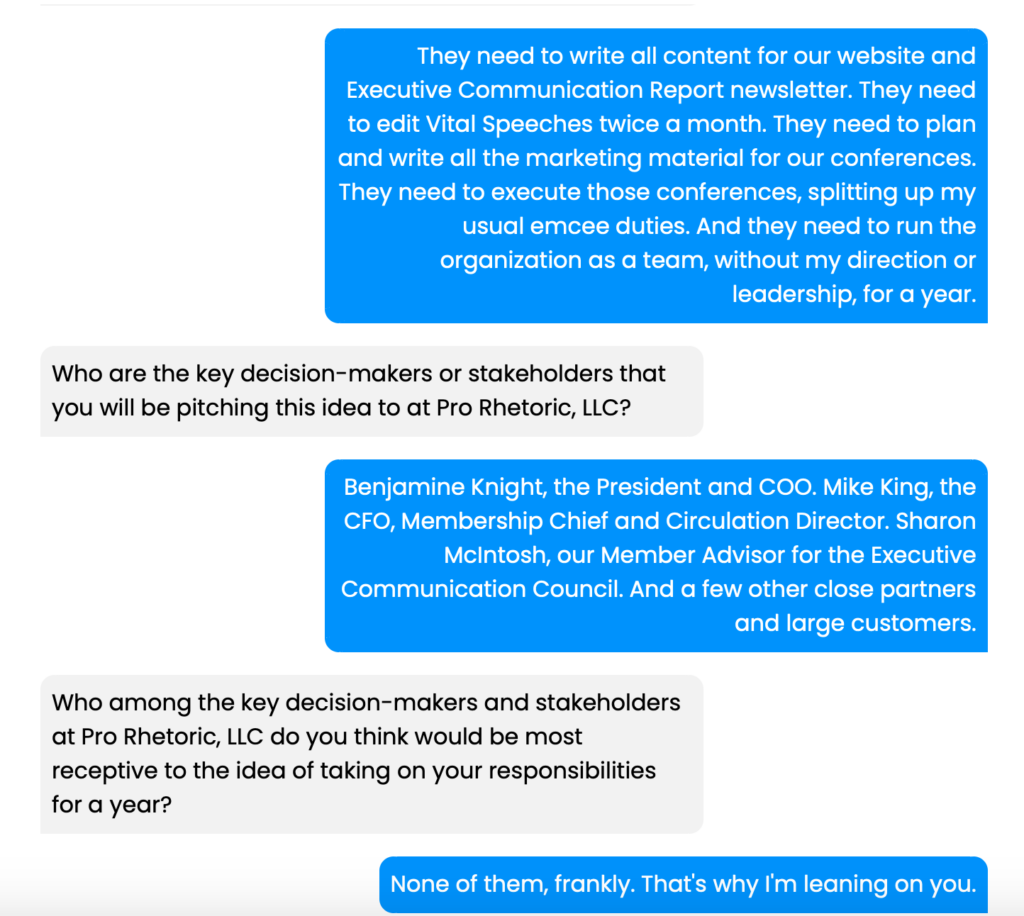
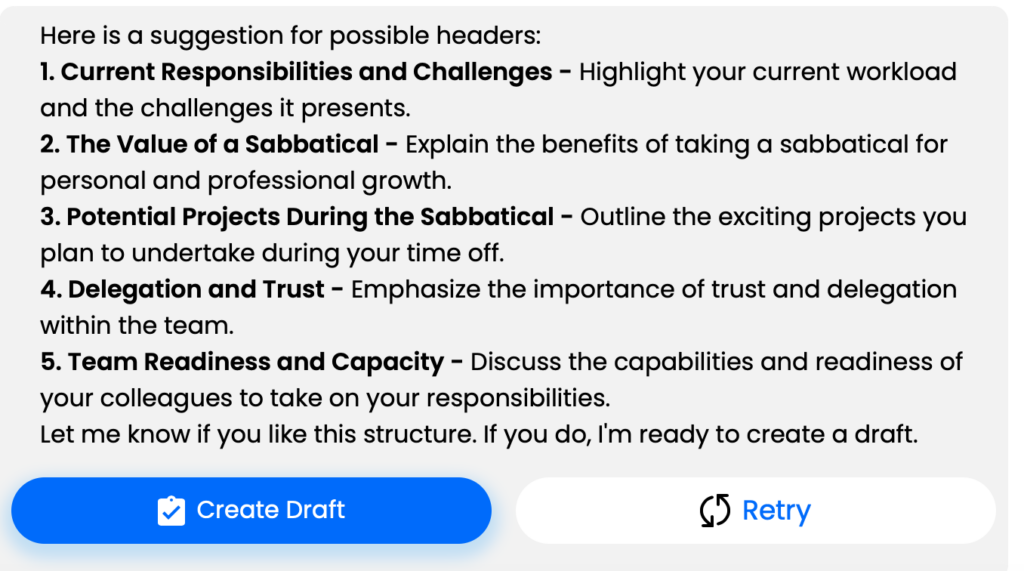
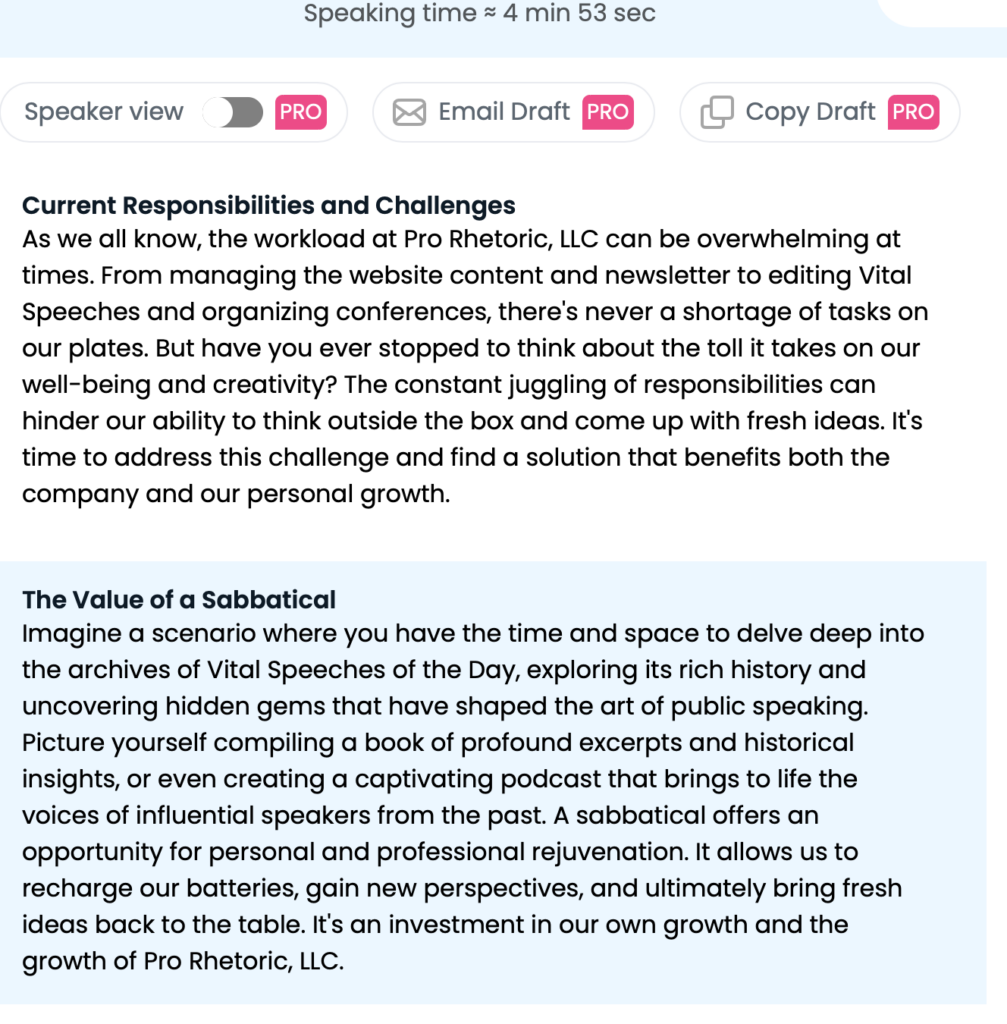
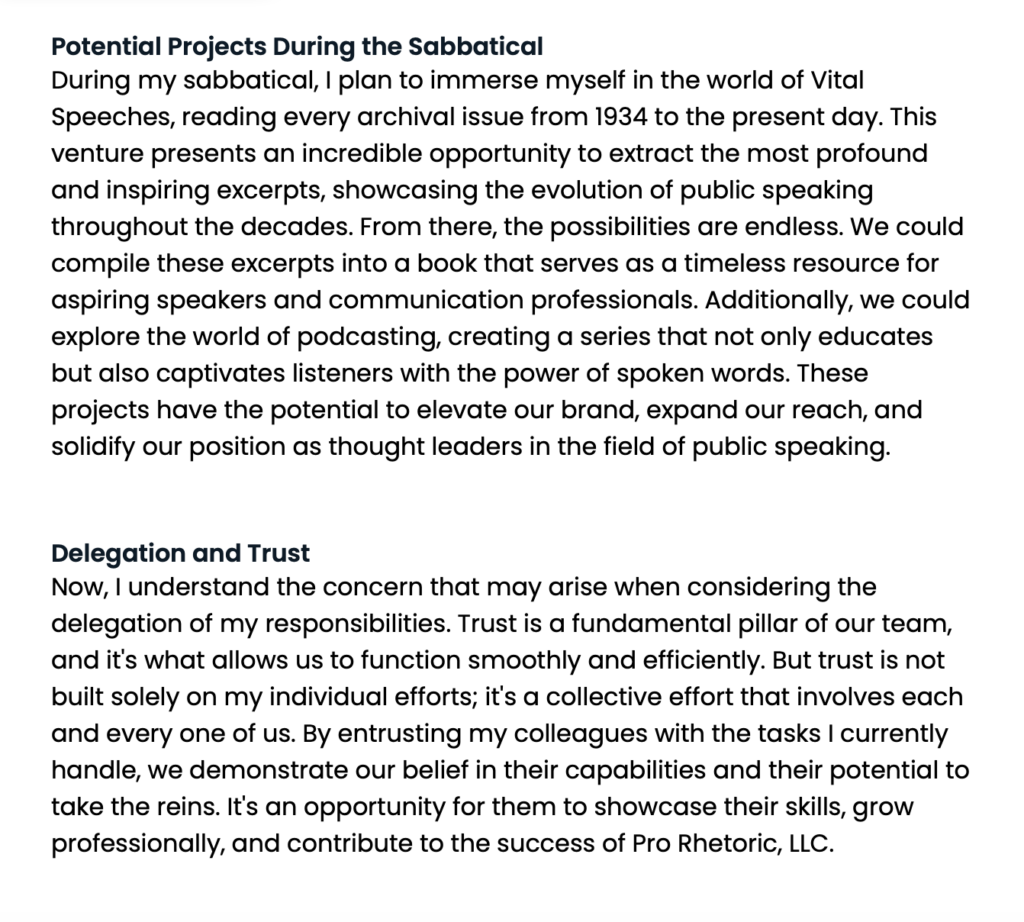
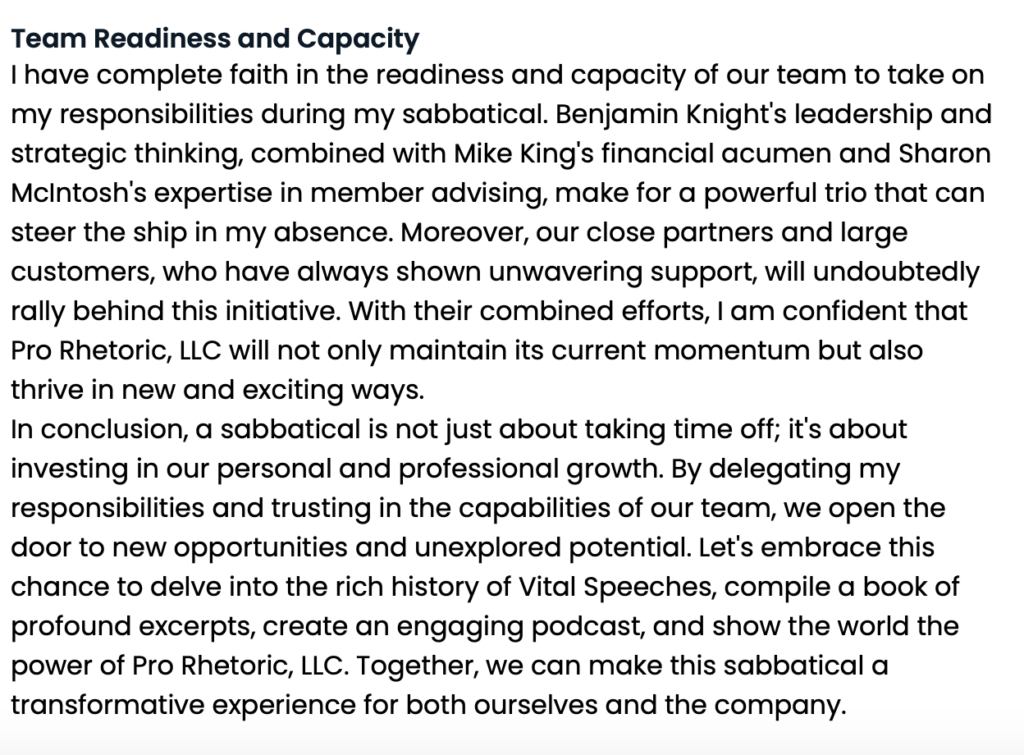
Well, whaddya think, gang? Far as I can tell, this AI assistant took on an ill-conceived assignment without any pushback even though I said that not a single person on my team would be in favor of the idea.
Armed with that audience analysis, it did a worse job of making the case than I did in my original query, introducing clichés like “outside the box” and “the possibilities are endless,” creating condescending and insulting bromides about how “trust is a fundamental pillar of our team” in the service of a disingenuous and utterly unconvincing argument that tries to gaslight my colleagues into believing if they don’t support my taking this self-indulgent sabbatical, they’re being selfish.
I am sure that AI will have an impact on speechwriting jobs someday, and I believe there are some legitimate uses today, especially for speechwriters researching unfamiliar subjects. In fact, we’ve got a session on the subject at the PSA World Conference this October … and another at our Speechwriting School.
But if, as a speechwriter or a communicator of any kind, you are afraid of being put out of work by the conception and composition abilities of a tool like this, then you should be. Because you weren’t a speechwriter in the first place, you were a typist.
And if, as a leader, you find this speechwriting assistant is a worthy substitute for a real communication pro, then you’ve either employed bad comms people or you’re unworthy of a good one.
As for most speechwriters I know and respect, I lean on the incredulity of one of them, faced with the notion that AI could replace him: “Do they have any idea what I actually do around here?”
The problem with AI as I see it right now, is not that it could replace good communications professionals, but that anybody in a position of authority (especially financial authority) believes that it could.
Yes, as I put it in promoting this article online:
TERRIBLE SPEECHWRITING CLIENTS, REJOICE! A new AI tool offers just the kind of boot-licking, unthinking, un-demanding “speechwriting assistant” you’ve always wanted.